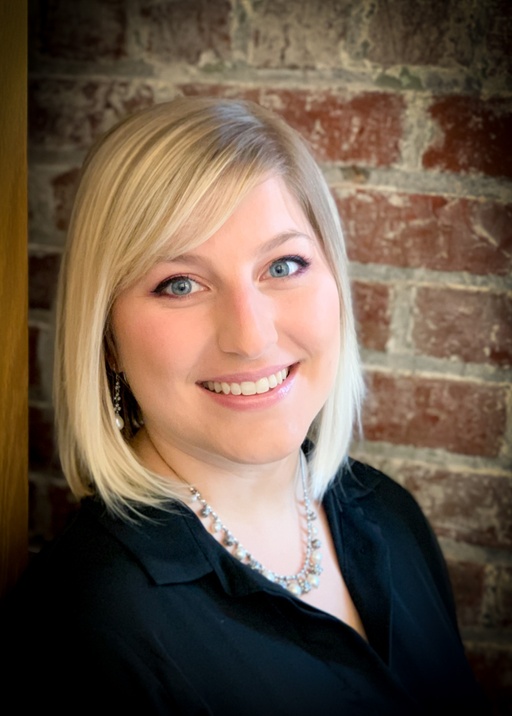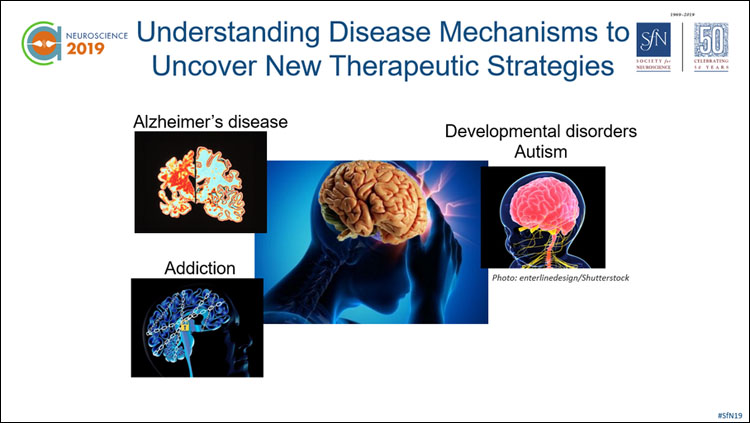Future of Neuroscience: Jenn Honeycutt

Jenn Honeycutt
"Future of Neuroscience" is a series of interviews with rising members of the field. A forward-looking complement to SfN's “History of Neuroscience” autobiographies of distinguished researchers, interviewees reflect on their emerging careers and share thoughts on where they believe neuroscience is headed.
Neuroscience Quarterly (NQ): Why did you choose to pursue a career in neuroscience?
Jenn Honeycutt (JH): I initially planned to major in psychology and fine arts. During the summer before my sophomore year, my college got a new professor who was coming in to do behavioral neuroscience. I applied to help her get her lab started because the job involved taking care of rats — I had a pet rat and thought, “I could do this.” While I worked in her lab, I realized how much I loved doing research and working with the animals. I found that I had a lot more creativity in the labI found that I had a lot more creativity in the lab than I did in the studio for my artwork. than I did in the studio for my artwork. I felt creatively boxed-in by my art, which is kind of a strange thing to say. But in the lab, I could apply a lot of skills that I was using in the studio to problem solve and think outside of the box. I ended up dropping my fine arts major and adding a concentration in neuroscience during my junior year.
NQ: What is your specific area of research?
JH: My specific area of research is affective behavioral neuroscience. I'm really interested in the neural underpinnings of emotional behaviors and the disorders that are characterized by affective dysfunction — things like anxiety, depression, and schizophrenia. I do this in an animal model and aim to ensure the work I'm doing is as translational to humans as I can make it. My model system also looks at these disorders from a developmental perspective, since they occur over an entire lifespan and not just in a discrete time window. Specifically, I look at a model of affective dysfunction as a consequence of early-life adverse experiences. What is it about early-life trauma that can fundamentally change the course of brain development, and how do those specific changes translate to behavioral abnormalities in an adult animal?
NQ: How did receiving the Trainee Professional Development Award affect your career?
JH: Receiving the Trainee Professional Development Award happened to be in perfect alignment with me being on the job market. It gave me an extra opportunity to meet potential employers at the annual meeting because of the second poster session. There were some people that I was doing interviews with that couldn't make it to my regular poster session but could come to the professional development poster session, which was nice. Also, participating in the Leadership Development Program coincided really well with the work I was already doing to pursue my goals. It gave me some additional tools that I could use to obtain those goals.
NQ: Where do you hope your career will take you over the next few decades?
I am not interested in making a bunch of academic clones in my program.JH: Last summer I started a tenure-track position as an assistant professor of psychology and neuroscience at Bowdoin College up in Brunswick, Maine. This is the job — once I realized that this was a job I could pursue — that I wanted: working with undergraduate students, running my own lab. In terms of career trajectory, my primary goals are to build my research program, to hone my teaching skills, and to obtain tenure. Outside of that, I also hope to build a research program capable of producing undergraduates who are ready to go on to the next step of their career. I am not interested in making a bunch of academic clones in my program. I am interested in supporting students in pursuing what they are passionate about, whether that's in academia, industry, other applied jobs like science communication, or any of the various things that you can do with a behavioral neuroscience background. I want to be able to support them and watch them flourish.
NQ: What's something from your career thus far that you're most proud of?
JH: The experiences I've had mentoring students. I love seeing how much undergraduates and graduate students can accomplish and being able to help them to achieve those milestones. I've been most proud of watching students I've worked with go on to get into excellent graduate programs and to publish papers with me. That's been really, really exciting and worthwhile, which is probably another reason why I chose a career path at an undergraduate institution.
NQ: During graduate school, you were the only queer person in your program. What was that experience like?
JH: Being a queer scientist is not always that obvious. It can be an invisible identity and it intersects with a lot of other identities. When I would talk about my plans, there’s usually an assumption you're doing it with your opposite-sex partner. But I had a girlfriend and then fiancé and then wife during graduate school. I found myself feeling like I had to overcompensate to try and fit in because I was living a different experience. It can be really isolating to not have the same lived experiences as your peers and feel like they don't understand your perspective.
It can be really isolating to not have the same lived experiences as your peers and feel like they don't understand your perspective.I also taught during graduate school. Back then, I was pretty careful not to mention that I was queer or in a same-sex relationship mostly out of fear that it would be reflected on my evaluations. I didn't want to alienate any students, which looking back, was just another way of putting me back in the closet and saying it's not okay for me to be who I am. I have really pivoted since then, and now in the first class of the semester I tell my students that I’m queer and tell them about my wife. That’s been a lot more liberating and I think it sets me up for better, more honest relationships with students too.
NQ: How can senior scientists support queer trainees?
JH: First and foremost by having an open mind and normalizing experiences. Ask your queer trainees or staff about how their partners and families are doing; asking is important, being interested is important. Be open and understanding about their relationships and experiences because they are totally normal. Recognize that instead of just ignoring it. Signaling your support is also important. You don't have to explicitly come out and say, “I support queer people” but you can do subtle things that tell us that we're accepted. You can do safe zone training on your campus; you can put your pronouns in your email and Zoom handle.























